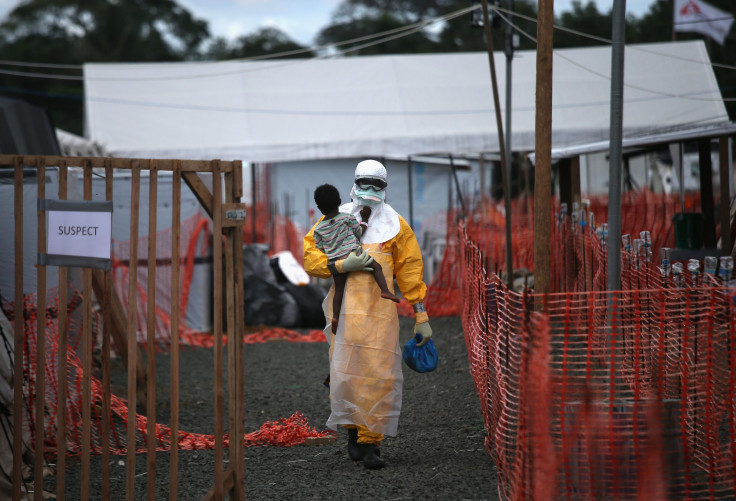Is The Ebola Outbreak Really Over? WHO Declares End To Epidemic In Liberia, For The Fourth Time

The most recent Ebola outbreak in Liberia is over, the World Health Organization said Thursday. The catch to the good news? This is the fourth time the organization has declared an outbreak over in Liberia, and given how contagious Ebola is, future outbreaks still are possible.
For the virus to flare up after an outbreak has been deemed over is not uncommon because humans can contract the disease in a number of ways. Every time it returns, the virus poses fresh challenges for affected countries, including their people, healthcare systems and economies.
The WHO defines an outbreak of Ebola as over once 42 days pass without a new infection. That period constitutes two 21-day incubation cycles of the virus.
But because humans contract Ebola not just from infected people, but also from contaminated surfaces and things, like bedding or clothing, the virus can return. The bodies of those who die from Ebola remain contagious, too.
The WHO repeatedly has declared the end of Ebola transmission not just in Liberia, where it said in May 2015 the original outbreak was over, but also in the other countries hardest hit by the virus.
It declared Jan. 14 Ebola in Guinea, Sierra Leone and Liberia was “at zero.” Dr. Bruce Aylward, the WHO’s special representative for the Ebola response, cautioned at the time, “We still anticipate more flare-ups and must be prepared for them.”
The next day, the WHO reported a new Ebola case in Sierra Leone.
The most recent cases in Guinea, seven confirmed and three probable, were reported in that country in March and April. The WHO hypothesized the likely cause was “infected body fluid from an Ebola survivor” and warned “the risk of additional outbreaks from exposure to infected body fluids of survivors remains.”
It declared Guinea free of Ebola again June 1.
In early April, a woman who had traveled from Guinea to Liberia in March with her three children was confirmed to have Ebola. It was the third time Ebola had flared up in Liberia after the initial outbreak was declared over.
The Ebola epidemic began in West Africa in 2014, eventually killing more than 11,300 people in Guinea, Sierra Leone and Liberia. The odds of more outbreaks are falling, but the WHO has warned flare-ups remain likely “largely due to virus persistence in some survivors.”
The true human and economic tolls of the Ebola epidemic on Liberia, Sierra Leone and Guinea are likely incalculable, but the World Bank has suggested the outbreak pushed Sierra Leone into a recession and slashed economic growth in Guinea. Liberia will need to spend an estimated $812 million on its Ebola recovery plan while Sierra Leone’s is expected to cost some $844 million and Guinea’s, $2.89 billion.
The epidemic, which killed more than 500 healthcare workers in the three countries, also helped fuel a rise in maternal mortality in those countries. A study in the medical journal Lancet additionally found because of Ebola, cases of untreated malaria probably spiked, leading to an additional 10,000 deaths.
© Copyright IBTimes 2024. All rights reserved.




















